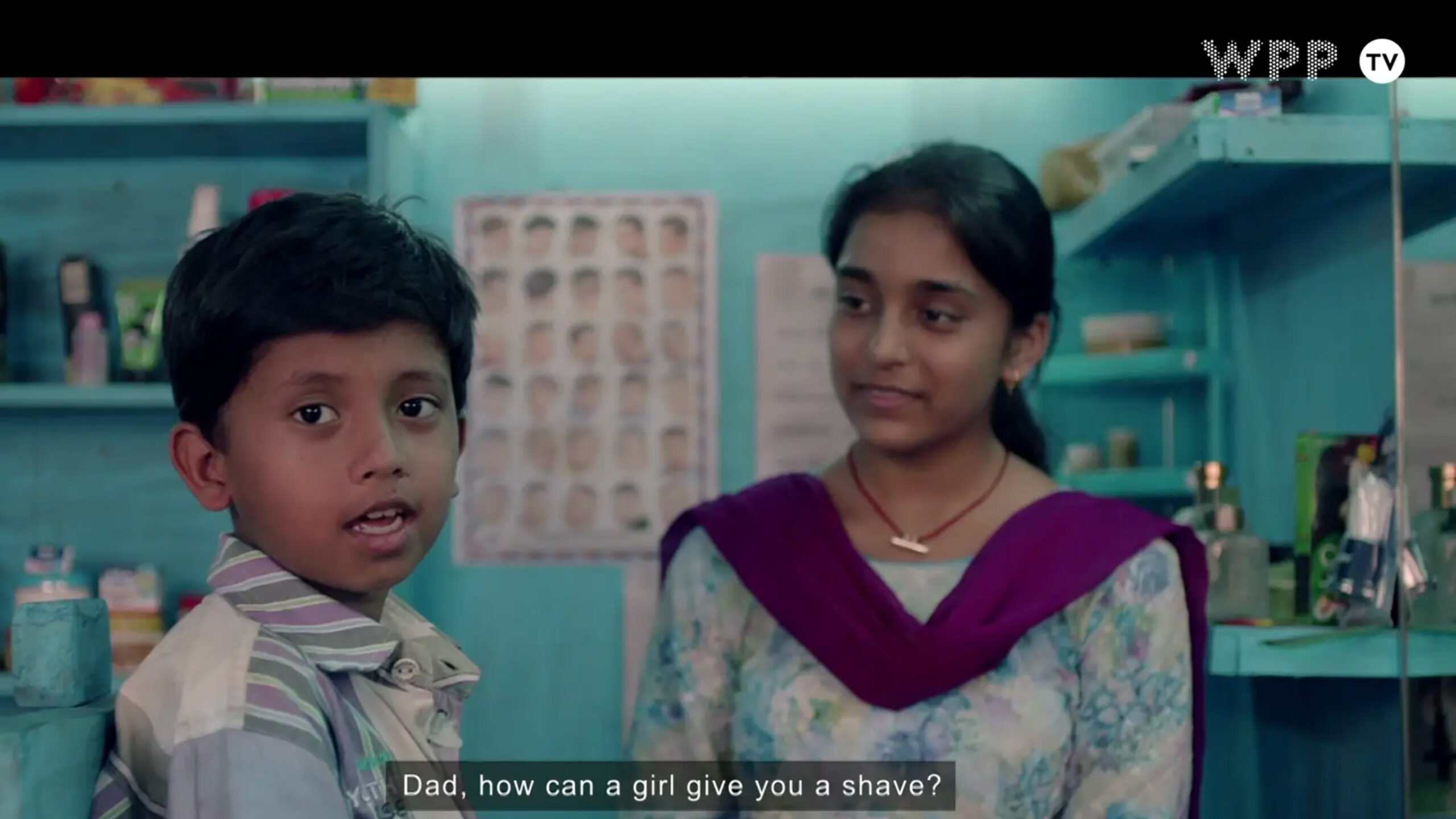‘Woke washing’, that is, the usage of socially conscious marketing strategies has become a trend, which is the reflection of society’s increasing need for politically correct representations. Researches have found that most of these woke advertisements deal with two main political movements, one of which is the feminist movement. These feminist advertisements or ‘femvertisements’ often have severe repercussions apart from the ethical dilemma it poses. To understand how they impact the feminist movement, let’s take the example of Gillette, a popular grooming brand.
Through all these years, Gillette’s tagline has been ‘the best a man can get’, which speaks on two levels, one is that Gillette is the best a man can possess, and on the other hand, by using Gillette, a man can reach the epitome of goodness, that is, they become the best version of a man. So, there is inherent goodness with the product and the man using that product.
For years, the Gillette advertisements, local or international, have been patriarchal and misogynistic, even when they started advertising for women’s razors, which are called Venus. The advertisements for women’s razors mostly claimed to produce smooth skin by using the generic narrative trope used to sell beauty products, that is, by showing a lack in the body with hair, and how shaving off the hair creates the ideal beautiful body.
Gillette landed itself into a major controversy when it started taking a political stance and produce a series of ‘woke’ advertisements in 2019. One of these advertisements was for Venus, that is, the women’s razors shifted their message to project that all skins are beautiful, titled My Skin. My Way Stories. However, the need to shave still rejects some women from this narrative, the women with hairy bodies. The irony of the advertisement was not lost as people further commented on the difference in prices of women’s razors with men’s razors, where Venus is more expensive but does the same job as men’s razors.
The major controversy came with their advertisement on men’s razors in 2019, titled We Believe: The Best Men Can Be. The advertisement questioned and challenged several aspects of toxic masculinity including bullying, catcalling, sexist television content, mansplaining, and even addressed the ongoing #MeToo Movement. It showed how men can be change-makers of this system where they stop other men from doing these things, as well as bring out healthy behaviours in children. They even challenged the much-used phrase, ‘boys will be boys’, thus challenging the toxic masculinity attached to it. Finally, the tagline of the product was changed from ‘the best a man can get’ to ‘the best a man can be’ by urging men to be more responsible and of course, attaching the value that such responsible men use Gillette.
This of course did not sit well with the target audience, that is, the men. Several papers on advertisements claimed that this is one of the things people should learn to not do, as such commercials made the target audience feel that they are first being insulted and then asked to buy a product. It also further raises the question of ‘All Men’ versus ‘Not All Men’. Male researchers argue that Gillette made customers feel like they are accusing all men of performing toxic masculinity, whereas, the commercial actively showed male actors who stopped other men from harassing, including an interview of Terry Crews where he addresses toxic masculinity. So, there was no accusation, but instead, an urge to look in retrospect.
However, the advertisement did not go well. The YouTube video currently has 821,000 likes and 1.6 million dislikes. The ratio was much higher last year, and now it is believed that comments and dislikes are getting removed. The comment section is filled with various kinds of hatred, from people swearing never to use Gillette again to consistent sexist comments. Several people also claim that they visit the video now and then to ensure that their dislikes and crude comments are not removed from this video. Some people’s comments included a supposed loss suffered by Gillette post the publishing of this video. This piece of news, although unverifiable, got a lot of likes from other people. A couple of other people also commented on extremely misogynistic things like, “This video made me beat my wife more.” While some people condemned such comments, some cheered them too. These instances go on to show how much the target audience, which mostly composes of white male profiles, has rejected this advertisement and the message it tried to deliver.
Also read: Why Today’s Advertisements Continue To Be Problematic
These reactions of the people to such a ‘woke’ message on toxic masculinity created more hatred for feminism and the #MeToo movement. Further, this seemed like an attempt to build allies for the feminist movement as the product is meant for men, and lowkey tries to project the idea of men being the saviours of women from other men. The video tried to deal with too many problems in 1 minute 45 seconds, and it was not sensitively dealt with to break down centuries of patriarchy.
On the other hand, the idea of beauty being attached to hairless bodies in the advertisements for the razor for women along with the increased prices of women’s razors questions the motives of the brand, making us wonder if they are allies to the feminist movement. Using such long-fought battles as a marketing strategy is not only ethically wrong but also diminishes the ‘aura’ of the movement by constant and banal reproduction, as Walter Benjamin argues. Thus, femvertisements counteract the feminist discourse and are counterproductive to the resistance.
In addition to this, one might presume to do some damage control, Gillette released a series of other advertisements which deliver social meanings. The Barbershop Girls of India is one such video that challenges gender roles and normativity, which is an accepted visual representation in our society, unlike toxic masculinity. In India, it is traditional for men to take up barbershop works. This video shows the story of two girls who run a barbershop and when a boy promptly asks his father why a girl is shaving him, the father replies, “How does a razor know if the user is a man or a woman?“, disseminating the idea that a razor does not discriminate, so neither should society. The background score is a traditional Bhojpuri song sung generally when a male child is born, wishing him good health and long life. The song lyrics change when the girls use the razor to shave which then starts wishing good health and long life to a girl. This advertisement has 6500 likes and only 566 dislikes currently and the comments widely appreciate this video.
Some people also claim that Gillette India is thus far better than the international Gillette page. Some have also started the debate regarding what real feminism is, claiming this to be real feminism. Again, such an advertisement does drastic damage to the feminist movement where the brand’s attempt to perform damage control from the toxic masculinity advertisement allows people to determine what feminism is and what it is not. It reflects that the brand regrets the toxic masculinity video and is trying to make up for it by posting more traditionally accepted ‘woke’ videos, which defeats the whole purpose and the resistant nature of the political stance.
Further, Gillette felt a need to dress these actors in the video in traditional women’s clothes, that is, salwar with dupatta and braided hair. On the contrary, the actual women upon whom this narrative is based are seen to be dressed in pants and shirts and have short hair. The need to change the way these women look to fit their idea of femvertisement is again ethically wrong.
Also read: Femvertising: How Corporates Co-opt Feminism To Sell Us Things
Such femvertisements also remove any sort of intersectionality which exists after a lot of struggle in the feminist movement. In an attempt to connect to a wider range of audiences, the experiences of gender are brought down to stereotypes, and the differences in material conditions and lived experiences are not portrayed, thus reducing the whole struggle into a few broad issues, portraying a handful of problems which exist worldwide. Thus, it is conclusive that such narrow-minded femvertisement challenges the feminist movement is futile in creating awareness, and creates much more confusion when not responsibly produced.
Shreyashi Sarkar, is an aspiring scholar, pursuing M.A. in English and Cultural studies from CHRIST (Deemed to be University), Bangalore. A research oriented individual, currently in the pursuit of making the world a better place to place in. When not reading or writing, she enjoys playing the ukulele. Follow her on Instagram, Facebook and LinkedIn.
Featured Image Source: a still from Gillette’s The Barbershop Girls of India ad





There are four types of feminism, as far as I know – liberal, radical, socialist, and neo-Marxist, all are stigmatized with toxic anti-male manifestations that have built a radical cultural foundation. I never condone the moral intrinsic virtues of feminism, apart from what the 1st and 2nd wave feminists upheld. Feminism and women’s rights become defeated ideologues the moment any uprising, any thought, or any post drags men for women’s issues of everything inferring to “patriarchal tyranny.” Mine, along with incalculable men and women’s are not influenced by the ratified ideological narratives about “how boys and men need to be in their lives and support feminism.” So, the more the wokeism, the more feminism suffers at the end of the day, and this is an eternal convention now.
You don’t condone the intrinsic virtue of feminism? So you don’t agree with the economic, social, political, and personal equality of the sexes?